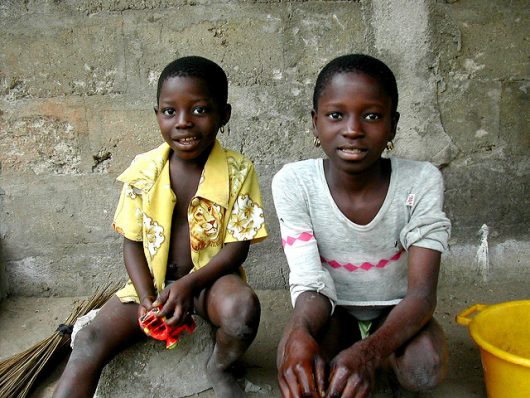Five Areas of Human Rights in Benin
 Benin is a small West African nation located just west of Nigeria. The first African nation to successfully transfer power from a dictatorship to a democracy, Benin continues to be one of Africa’s most solid democracies. This democratic stability has contributed to constitutional and legal rights and protection of human rights in Benin.
Benin is a small West African nation located just west of Nigeria. The first African nation to successfully transfer power from a dictatorship to a democracy, Benin continues to be one of Africa’s most solid democracies. This democratic stability has contributed to constitutional and legal rights and protection of human rights in Benin.
Despite the various protections afforded under the law, there are still some challenges regarding human rights in Benin.
- Major issues with prison conditions plague Benin. The most notable issue is overcrowding. A 2015 report from the NGO Watchdog on the Justice System in Benin found inhumane conditions in 10 civil prisons, including significant overcrowding, malnutrition and disease. A delegation from the UN Subcommittee on the Prevention of Torture found similar congestion issues during inspections conducted in January 2016. Legislative attempts have been made to address overcrowding. A new community service law was adopted in June 2016 to reduce congestion through non-detention sentences. New penal code regulations requiring a person to be presented to judicial authority within 48 hours of their arrest have also contributed to improved prison conditions.
- Issues with police have also been widespread in Benin. Police in the country is under-equipped and poorly trained, despite efforts to expand infrastructure and equipment. Corruption is an issue in the police force, with police extorting money from people at roadblocks. There have also been issues with impunity following police violations and abuses. While citizens can file complaints, their immunity often simply leads to direct presidential involvement to solve problems.
- Problems with corruption extend into the government. While there are criminal penalties for corruption, the law is often applied ineffectively, allowing some officials to engage in corruption without penalty. The court system is also highly susceptible to corruption. Transparency International reported that the judiciary in Benin is the weakest of 13 different Beninese institutions with regards to corruption. Inability to enforce corruption laws due to lack of independence of the judiciary plays a significant role in the presence of corruption in Benin.
- Violation of women’s rights persists in Benin. Despite the constitutional assurance of the equality of women, discrimination in political, economic and social spheres continues due to societal attitudes. Specific practices include discrimination in hiring, credit, equal pay and business ownership or management. Domestic abuse is present, often going unpunished. Additionally, female genital mutilation is widespread in Benin, occurring on girls and women from infancy to age 30, with a majority of instances occurring before age 13. While the practice of female genital mutilation is mostly happening in northern rural areas and carries harsh legal penalties, the continuation of the practice is a major violation of human rights.
- Children’s rights have seen some growth in Benin, with legislation implemented to fight trafficking, abuse, child labor and discrimination. Growth has also been seen in health and education. However, numerous concerns are still present in these areas so much improvement is still needed. Despite NGO campaigns, infanticide is still a major issue in Benin, forced early marriages occur in the country and female genital mutilation is also a problem affecting girls and young women. Even with laws present to protect against these issues, impunity for perpetrators is widespread.
The Takeaway
Active steps are being taken, especially in the form of legislation, to protect human rights in Benin. However, a major theme that can be seen in the country is the failure to effectively implement many of these laws, leading to impunity in the face of violations. Proper implementation and follow-through of appropriate punishments for violations will be a major step to protecting human rights in Benin.
– Erik Beck
Photo: Flickr
